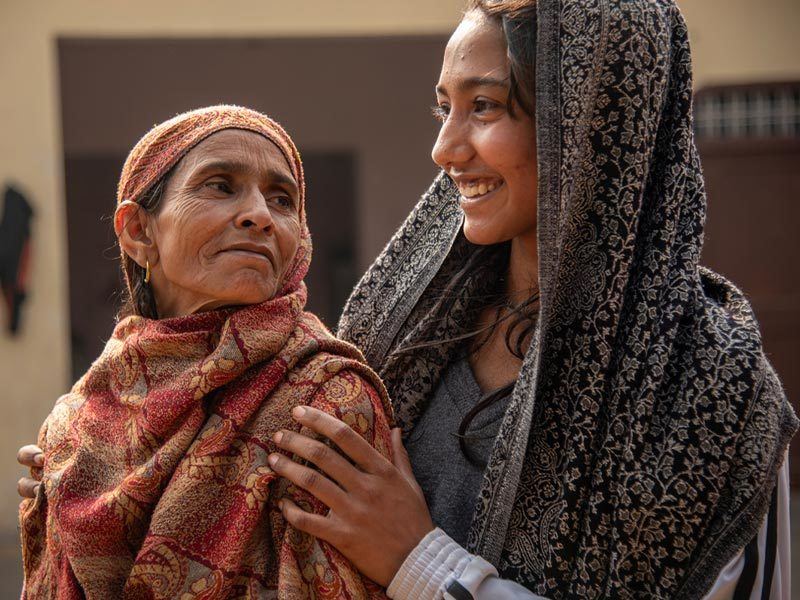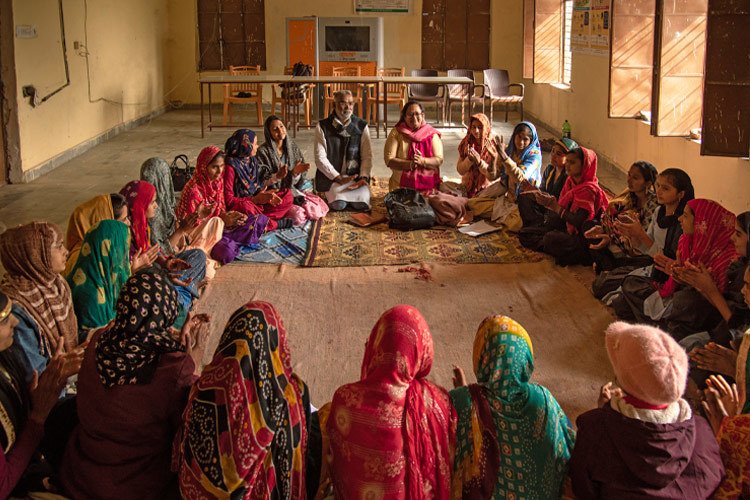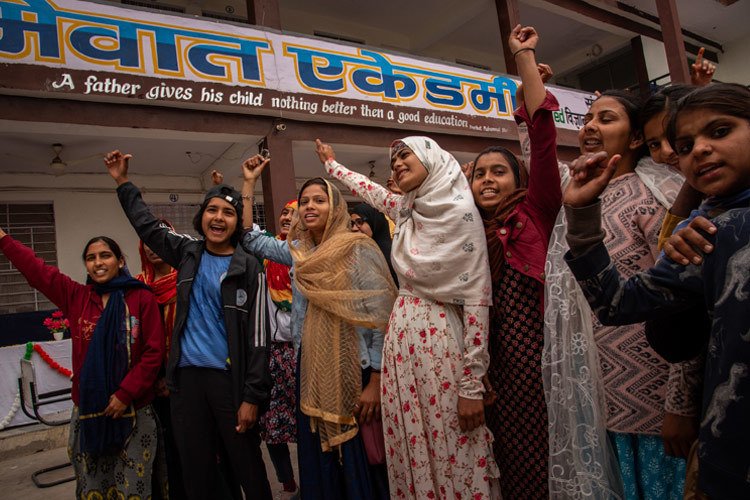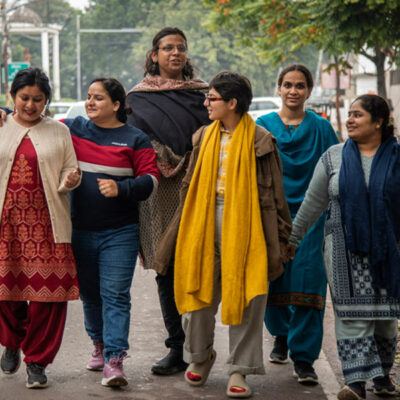
In Medabas village in rural Mewat, India, no girl had ever finished high school — until recently.
Instead, girls were married off by the time they were teenagers, and locked into a life of housework, farming and raising children. But when AJWS grantee Alwar Mewat Institute of Education and Development (AMIED) entered Medabas and encouraged families to educate their daughters instead of forcing them to marry, this patriarchal tradition finally — and slowly — started to change.
Najee Khan grew up before that change began.
She was only 10 — a fifth grader — when she was married to Rafique, who was at least 30 years old. She was forced to drop out of school and abandon her dreams. Amazingly, she negotiated with her parents to remain at home until she was 14, when she moved in with Rafique. By 16, she was pregnant, and had six children in rapid succession, including her daughters Barkha and Naheeda. Still a child herself, Najee swore that her daughters would never face the same fate she had.
AMIED helped cement Najee’s resolve.
AMIED was founded with a simple idea to tackle a complex problem in India: They believe education is the key to diminishing forced and child marriages and giving girls control over their lives, creating an equitable society for all. AMIED works in 175 villages in Mewat at the grassroots level, engaging with local and religious leaders and parents to normalize the notion of girls attending school instead of getting married.

They’ve established dozens of education and tutoring centers to help adolescent girls who’ve dropped out to catch up and re-enroll in school. AMIED has re-enrolled 15,000 girls across Mewat so far — slowly but surely chipping away at the practice of child marriage in the region.
AMIED’s believes that education is more than just a gateway to careers; it’s critical to empowering girls and young women to stand up for themselves — in their families and villages, and in the face of India’s overwhelmingly patriarchal society. Girls who have gone through AMIED’s educational support programs are now successfully fending off family pressure to marry early, and dismantling the very social constructs that kept them shackled to housework and childrearing for generations.
As AMIED’s founder and director (and a Mewat local who himself was forced to marry at 16) Noor Mohammad says, “We are creating professors and teachers and nurses where girls used to be illiterate. In Mewat, girls are able to dream now. This change doesn’t come out of nowhere. It happens gradually, step by step. But it’s coming, and people are grasping just how powerful that change is.”

This sense of possibility appealed to Najee. When AMIED began operating in her village, she quickly got involved. This proved to be a critical decision, because when Najee’s oldest daughter, Barkha, was ready to enter high school, Rafique and his family prepared to find her a husband. Najee refused. Her in-laws hid the identity documents Barkha needed to register for high school — and Najee stormed their house to recover them. AMIED helped Najee navigate these difficult conversations and emboldened her to take action.
“I would not be stopped from getting my daughter to school,” she says proudly. “My daughters must have a better life than me. My life is working in the fields, carrying dung, feeding my husband and my buffaloes. I just wanted my daughters to live in peace and comfort.”
Her boldness stunned Rafique — who didn’t speak to her for 2 months — but ultimately, he agreed. When Najee’s middle daughter, Naheeda, was ready for high school, Rafique didn’t fight — instead, he cheered her on. He calls Naheeda “the most intelligent person in the family.”
Today, AMIED is providing intensive tutoring and housing to Naheeda and nine other girls as they study for an exam that would qualify them for prestigious government administration jobs. When she’s not studying, Naheeda is a passionate AMIED volunteer, holding interventions with local families to convince them to keep their daughters in school.
“We go house to house — one conversation at a time — and return again and again,” says Naheeda. “If they’re not ready to listen, we don’t let up. It’s just not an option.”

She’s living her mother’s dream, and she wants to pass it on.
“I know that education has the power to stop child marriages. Empowering a young girl to speak up to her family and demand her rights can change the course of her life,” says Naheeda. “If I got married now, my education would stop. That’s no choice for me. I can get married anytime. But my education can’t wait.”

